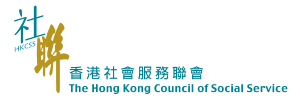“Mental Health: Adult Physical and Mental Wellbeing Series” – Issue Three: Review for Research on the Mental Health of Working Adult from the Perspective of Academy, Part 1
After the COVID-19 pandemic and social distancing measures, the public concern over the mental health issues of the youth or the elderly in Hong Kong has been heightened. As for mental health needs of working adults, its public concern is less acute. They more rely on the provision from the private sector. To gain a deeper understanding of the working adult mental health issue and their implications for future service development in the sector, The HKCSS publishes “Mental Health: Adult Physical and Mental Wellbeing Series”. This publication synthesizes research conducted by various social stakeholders, integrating their perspectives on the mental health status of Hong Kong's working population. Issue three of “Mental Health: Adult Physical and Mental Wellbeing Series” would be focusing on “Review for Research on the Mental Health of Working Adult from the Perspective of Academic Institution (One)” (see appendix). This issue will focus on research conducted by the academy over the past decade, examining the scope and perspectives of academia on this topic, alongside the methodologies and measurement scale employed. Key findings from these studies will be discussed in the next issue. Should you have any enquiries or comments on this information, please contact Mr. Lo, Officer (Policy Research and Advocacy) (Tel: 2876 2488 or ...
“Mental Health: Adult Physical and Mental Wellbeing Series” – Issue Two: Review for Research on the Mental Health of Working Adult from the Perspective of Insurance Company and EAP Service Provider
After the COVID-19 pandemic and social distancing measures, the public concern over the mental health issues of the youth or the elderly in Hong Kong has been heightened. As for mental health needs of working adults, its public concern is less acute. They more rely on the provision from the private sector. To gain a deeper understanding of the working adult mental health issue and their implications for future service development in the sector, The HKCSS publishes “Mental Health: Adult Physical and Mental Wellbeing Series”. This publication synthesizes research conducted by various social stakeholders, integrating their perspectives on the mental health status of Hong Kong's working population. Issue two of “Mental Health: Adult Physical and Mental Wellbeing Series” would be focusing on “Review for Research on the Mental Health of Working Adult from the Perspective of Insurance Company and EAP Service Provider” (see appendix). Since, insurance companies and EAP service providers are currently the primary suppliers of workplace mental health support services in Hong Kong, this issue will focus on presenting research conducted by several insurance companies in recent years, summarizing the scope and perspectives of their investigations into this topic. The key findings include the mental health landscape among Hong Kong's working population, sources of ...
“Mental Health: Adult Physical and Mental Wellbeing Series” – Issue One: Review for Research on the Mental Health of Working Adult from the Perspective of Non-Governmental Organization
After the COVID-19 pandemic and social distancing measures, the public concern over the mental health issues of the youth or the elderly in Hong Kong has been heightened. Yet, as for mental health needs of working adults, its public concern is less acute. They more rely on the provision from the private sector. To gain a deeper understanding of the working adult mental health issue and their implications for future service development in the sector, The HKCSS publishes “Mental Health: Adult Physical and Mental Wellbeing Series”. This publication synthesizes research conducted by various social stakeholders, integrating their perspectives on the mental health status of Hong Kong's working population. The first issue of “Mental Health: Adult Physical and Mental Wellbeing Series” would focus on “Review for Research on the Mental Health of Working Adult from the Perspective of Non-Governmental Organization” (see appendix). This issue will introduce multiple studies conducted by NGOs in recent years, summarizing the research questions and perspectives adopted by these organizations on this topic, and highlight key findings, including employee’s propensity for help seeking, the effectiveness of Employee Assistance Programmes (EAPs), and corresponding policy recommendations. Should you have any enquiries or comments on this information, please contact Mr. Lo, Officer (Policy Research and Advocacy) (Tel: ...
綜援人士對「失業受助人士支援計劃」的看法調查報告
政府將由2025年10月起以綜援計劃下的「失業受助人士支援計劃」(支援計劃)取代「就業支援服務」,支援年齡介乎15至59歲的失業健全綜援受助人,要求他們每周參與由營辦機構安排的無償工作,直至找到有薪工作或重返主流教育。今年二月至三月,社聯與嶺南大學歐陽達初教授對369位領取綜援的失業人士進行問卷調查,了解他們對新計劃的看法。 研究發現,受訪者在過去都有尋找工作,但八成(80.22%)受訪綜援人士在重新就業時面對「不少」及「很多」困難,當中,五成(50.95%)受訪者面對兩項或以上的困難。有120位受訪者更表示,他們求職時不斷遭拒絕,當中,有一半(51.67%) 需要照顧家人、有慢性病(例如痛症)及/或有多身心健康不適。這顯示照顧者及長期病患者在就業市場上可能不受歡迎,需要多方合作才能讓他們重返就業市場。 儘管面對重重就業困難,大多數受訪者仍希望提升自己的就業技能,例如「售貨/店務」、「辦公室行政」、「倉務/理貨」、「廚藝」、「清潔」、「保安」或「駕駛」等,以尋找一些基層職位。 由於受訪者面對不少就業挑戰,有七成(73.71%)受訪者希望有個案經理跟進他們的情況,提供支援。 因此,社聯建議: 新「支援計劃」下的無償工作內容可增加更多技能提升的元素,以應對受助人的就業困難和需求,增加他們未來就業的可能性。 透過僱員再培訓局及勞工處,設立個案經理,加強職業培訓與配對,針對技能不足的問題提供支援,為受助人提供個人化支援,幫助他們更好地融入勞動市場。 下載報告: 綜援人士對失業受助人士支援計劃的看法調查報告 ...
March 2025 – Research Brief: “Holistic Health – Primary Healthcare Service Research Brief 3: Social Prescription Programme in Singapore” (only Chinese version)
To address the healthcare needs arising from aging population, the WHO recommends establishing comprehensive primary healthcare services in various regions. It emphasizes that the main strategies should operate on a preventive basis, through multidisciplinary collaboration and community participation, in order to enhance the health and wellbeing of overall citizens. Since this, the Council publishes a new research brief called “Holistic Health – Research Brief on Primary Healthcare Service” in order to enrich practitioners with more knowledge of the holistic health and primary care service and promote social-medical collaboration. Currently, different countries are launching medical and social collaboration schemes in order to strengthen primary care and alleviate the burden on existing healthcare system. This issue will introduce the social prescription programme and highlight the role of community hospital in using social-medical collaboration for supporting the discharge of the elderly. Should you feel interested into our research brief, please download as below: Research Brief: “Holistic Health – Primary Healthcare Service Research Brief 3: Social Prescription Programme in Singapore” (only Chinese version) For enquiries on collection of research information and our publications, please contact Miss Natalie Yau by email [email protected] or at 2864 2967 ...





